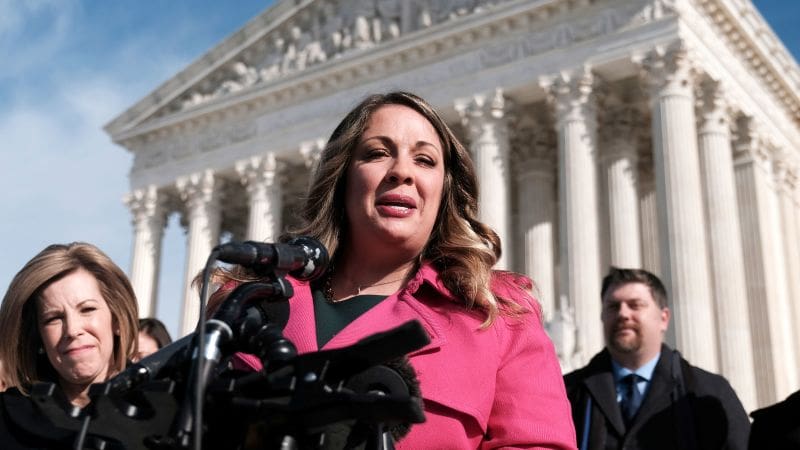
Supreme Court Rules in Favor of Christian Web Designer’s Religious Objections to Same-Sex Weddings
In a 6-3 decision, the Supreme Court ruled in favor of a Christian web designer in Colorado who refused to create websites celebrating same-sex weddings due to religious objections. Justice Neil Gorsuch penned the majority decision, joined by Chief Justice John Roberts and Justices Samuel Alito, Amy Coney Barrett, Brett Kavanaugh, and Clarence Thomas. Justice Sonia Sotomayor wrote a dissent, joined by Justices Elena Kagan and Ketanji Brown Jackson.
The court’s ruling deals a blow to LGBTQ protections, which have been strengthened in recent years through landmark decisions, including the legalization of same-sex marriage nationwide in 2015. Lorie Smith, the owner of 303 Creative, wanted to expand her business into the wedding industry but was prohibited by a Colorado public accommodations law from posting a statement explaining her refusal to create websites for same-sex couples. The court’s decision, based on free speech grounds, will impact public accommodation laws related to businesses selling “expressive” goods.
Justice Gorsuch argued that the First Amendment protects all forms of speech, including those conveyed over the internet. He accused Colorado of seeking to deny individuals their freedom of thought and speech. In dissent, Justice Sotomayor expressed concern that the decision undermines the government’s responsibility to ensure equal access to the public marketplace. She viewed the ruling as granting businesses a constitutional right to discriminate against protected classes.
Critics of the decision fear that it may pave the way for the overturning of the 2015 marriage case and allow for further discrimination against marginalized groups. However, Gorsuch pushed back against this interpretation, stating that the decision did not endorse discrimination against specific groups. Lorie Smith’s lawyer, Kristen Waggoner, praised the ruling, emphasizing the protection of Americans’ freedom to express their beliefs.
The timing of the court’s decision, on the final day of Pride Month, has sparked criticism from LGBTQ advocates. Justice Gorsuch’s opinion was unexpected, considering his role in delivering a key win for the LGBTQ community in 2020 when he extended workplace protections to include sexual orientation and gender identity. Advocacy organizations such as Human Rights Campaign and the American Civil Liberties Union condemned the ruling, arguing that it enables businesses to discriminate against LGBTQ individuals.
Democratic Representative Ritchie Torres, an openly gay member of the House, expressed concern that the court’s decision could have far-reaching consequences, not only for the LGBTQ community but also for other marginalized groups. Critics argue that the ruling permits businesses to turn away customers in violation of nondiscrimination laws.
This case echoes a similar one from five years ago, in which a Colorado baker refused to create a cake for a same-sex wedding. The court ruled in favor of the baker but limited the decision to the specific circumstances of that case. While businesses cannot refuse service based on sexual orientation under the law, the Supreme Court’s recent ruling gives weight to claims of religious objections.
The implications of this decision extend beyond the immediate impact on Lorie Smith’s business. It raises questions about the balance between religious freedom and equal treatment under the law. As the LGBTQ community and its allies continue to push for equal rights, this ruling may serve as a significant setback in their ongoing fight for equality.
Original Story at www.cnn.com – 2023-07-01 17:57:00


Comments are closed.